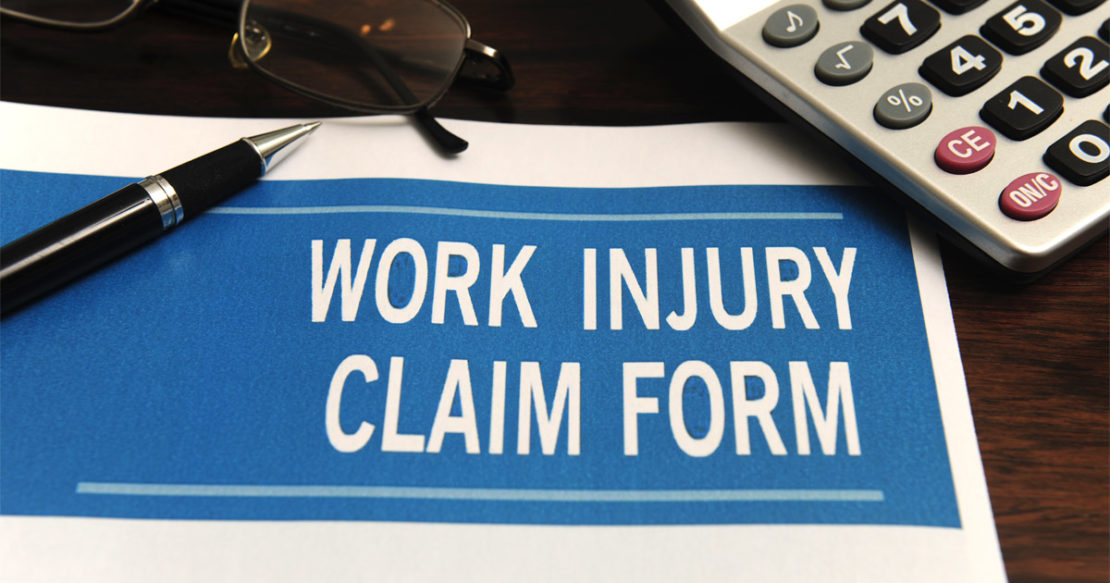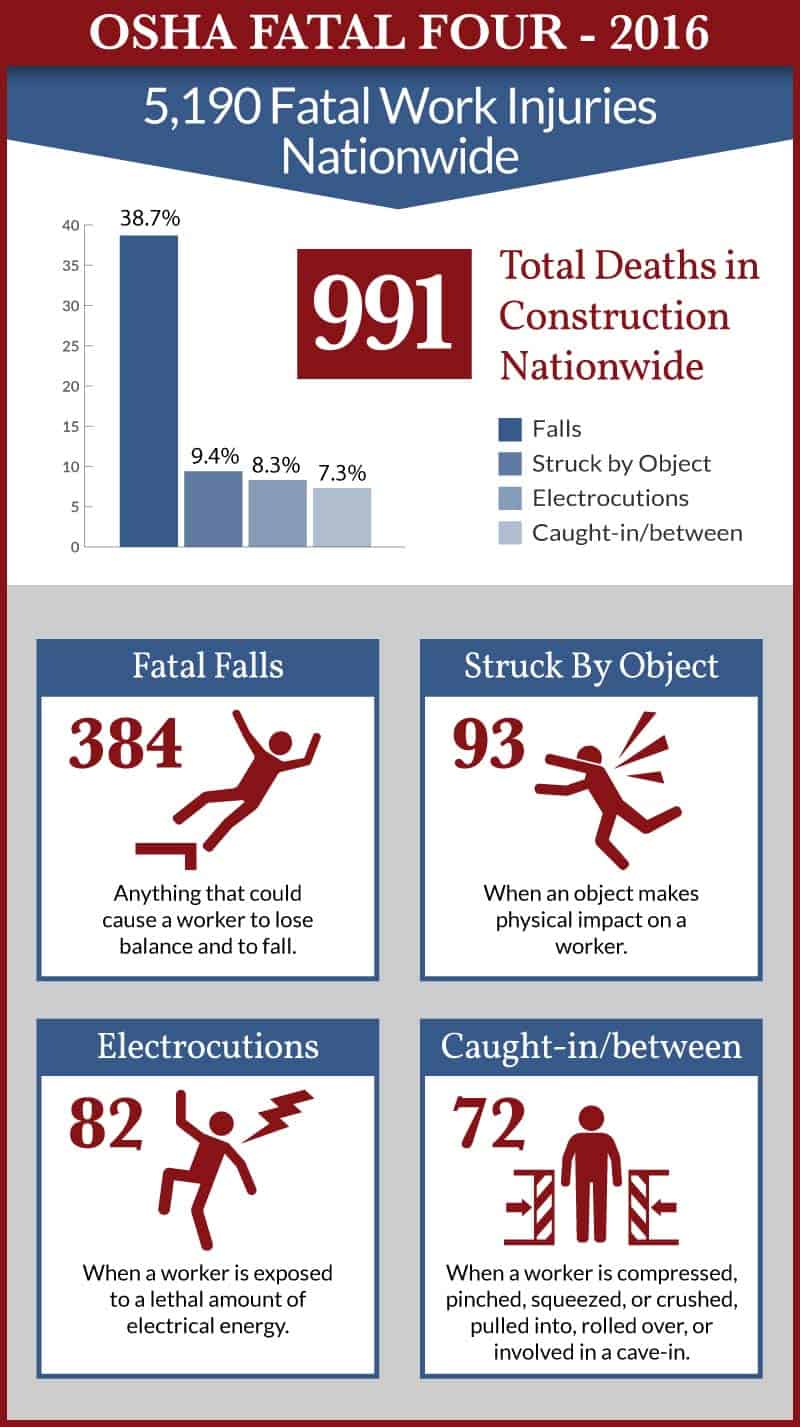Workers Compensation
Contact a Philadelphia Workers Compensation Lawyer Today

At Freedman & Lorry, P.C. our dedication to fighting hard in the courts for working people is unsurpassed. For over 70 years, our attorneys have delivered quality legal services to clients from all walks of life. Every day, we strive to improve upon our record of success.
For more information regarding our firm, or to speak with an attorney, contact us online or call our office at 215-925-8400 or 866-369-6060.
For more information view: https://www.freedmanlorry.com/practice-areas/workers-compensation/
If you incur injuries while at your job, the Philadelphia Workers’ Compensation lawyers at Freedman & Lorry, P.C. will fight for maximum compensation for your injuries or the tragic loss of a loved one. Call us today at 866-369-6060 or contact us online for a free consultation. Located in Philadelphia, Pennsylvania, Cherry Hill, New Jersey, and Pinehurst, North Carolina, we serve clients throughout Pennsylvania.

What Should Employees Know About Workers’ Compensation?
Workers’ Compensation is a set of civil laws protecting both workers and employers in the event of workplace accidents. A workplace injury can arise from an accident at work or repetitive work conditions that cause a sickness or disability. In Pennsylvania, Workers’ Compensation laws afford injured employees and their loved ones several types of benefits.
Workers may believe that they are victims of bad luck or must continue to work even though they are hurt. Workers’ Compensation is used to give workers peace of mind, and it is important for these workers to know the process. At Freedman & Lorry, P.C., we are proud to work with clients when they have been hurt at work and faced mistreatment.
What are the Basics of Workers’ Compensation?
Under Workers’ Compensation, an injured worker may be entitled to the following benefits:
- Weekly compensation for a large portion of their original salary or hourly wage
- Reasonable, necessary, and related medical treatment covered by the Workers’ Compensation insurance carrier
- Death benefits and burial expenses to a deceased worker’s dependents
The employer and its insurance carrier have teams of lawyers to deny claims or minimize payments. Our Workers’ Compensation lawyers will use their experience and litigation skills to protect an injured worker’s rights to benefits in any situation. Moreover, the situation may have been complicated by an insurance claim that was filed improperly, misinformed, or retaliated against at the work site.
Understanding the Pennsylvania Workers’ Compensation Act
The Pennsylvania Workers’ Compensation Act specifies the compensation for employees who become injured or ill as a direct result of their employment, regardless of fault. The Act is overseen by the Bureau of Workers’ Compensation and the Department of Labor & Industry (DLI). The Act protects both employees and employers. Employees receive compensation for medical expenses and lost wages, and companies pay for the cost of coverage. In turn, employers are protected from being directly sued by employees.
Other Types of Compensation Programs
Workers’ Compensation coverage is mandatory for most employers under Pennsylvania law, although there are exemptions. This includes people covered under other Workers’ Compensation acts, such as railroad workers, longshoremen, federal employees, domestic servants, some agricultural workers, and employees who are exempt as a result of executive status or religious beliefs. Employers who do not have Workers’ Compensation coverage may be subjected to lawsuits by employees and to criminal prosecution by the commonwealth.
The U.S. Department of Labor administers other types of disability compensation programs through the Office of Workers’ Compensation Program. These programs apply to federal workers and other groups, and provide medical treatment, wage replacement, vocational rehabilitation, and additional benefits. Other programs include the following:
- Maritime law
- The Defense Base Act: Workers are protected against any injuries that could occur during their employment. This law is so vast that it can be applied to almost anything because someone who has been deployed overseas cannot separate their job from their posting
- The Longshore and Harbor Workers’ Compensation Act: Helps those who work on docks and load vessels around the coastline of the United States and its outlying territories. These workers are given compensation under this law instead of state-mandated Workers’ Compensation
Under these programs, workers forgo traditional Workers’ Compensation that is offered by the state. Families often do not know the difference, and there can be confusion. A family that loses a loved one should know how their loved one was covered to avoid confusion.
Common Workplace Accidents
According to a Bureau of Labor Statistics (BLS) 2019 report, certain occupations are at a higher risk for work-related injuries and illnesses. The following are occurrences recorded for that year:
- Health care and social workers: 577,500
- Retail workers: 409, 900
- Manufacturing employees: 430,300
- Transportation/warehousing: 221,400
- Construction workers: 199,200
The BLS also names the states with Non-Fatal Workplace Illness and Injury Rates Above the National Average, and Pennsylvania was on the list. The most common causes for workplace injuries included the following:
- Overexertion/bodily reactions
- Slip and falls
- Contact with equipment/objects
- Workplace violence
- Transportation incidents
The BLS stated that the most common types of job-related injuries are strains, sprains, and tears; pain or soreness; lacerations, cuts, and punctures; and contusions, bruises, and fractures. Others include amputation and other traumatic injuries, tendinitis, heat burns, and chemical burns. The BLS also reported that fatal workplace accidents were on the rise, compared to the previous year.

The construction industry is one business sector that has advocated for workplace safety. Year after year, falls, struck-by accidents, electrocutions, and caught-in or between accidents are leading contributors to construction worker deaths. That is why the Occupational Safety and Health Administration (OSHA) has dubbed these the Fatal Four types of construction accidents. OSHA officials estimate that eliminating common hazards could save more than 600 lives every year. Even so, workers can avoid these injuries by using the following tips:
- Lift heavy loads with a back brace or use a team
- Wear protective gear when working with chemicals
- Wear non-slip footwear
- Check for standing water on worksites
- Do not operate tools or machines without checking the power cord and source first
- Do not operate any machinery without certification or training
- Observe all areas and caution signs
- Report any workplace harassment as soon as possible
- Use common sense and good driving etiquette when driving for work
Determining If the Injury is Work-Related
Workers’ Compensation claims need to prove that the injuries or illnesses occurred at work. In general, this means that the employee must have been doing something for the employer’s benefit when the incident occurred. If the injury occurred while the employee was traveling for work, factors such as who owned the vehicle being driven or whether it was a personal or business errand will be considered.
Injuries can also occur at company events, such as holiday parties or softball games. These could be considered work related, but there are exceptions. Those who break safety rules by committing crimes, using alcohol or drugs, or acting in other inappropriate ways could be denied benefits, depending on the situation.
Occupational Diseases and Cumulative Injuries

Repetitive stress injuries, lung ailments, and other occupational diseases and cumulative injuries can be harder to prove, as they result from long-term work exposure. This also includes psychological issues caused by workplace stress. As they tend to develop over time, it can be more difficult to establish a direct link from the workplace environment to the illness or injury. Each state has rules that apply to this, and a qualified Workers’ Compensation lawyer can be helpful in this respect.
We ask that our clients come forward when they receive a diagnosis or realize that their illness was brought on by exposure at work. We will begin an investigation and help that employee file a claim for Workers’ Compensation coverage. These disorders may come up out of nowhere, and it is important that employees report any discomfort as soon as possible.
Although these workers might have exceeded the statute of limitations for these claims, occupational exposure has some exceptions built in because diseases could arise many years later. One common disease is mesothelioma, which may not present itself for decades. We can also help anyone who must file a claim against a company that no longer exists, as that business was likely required to create a trust for these cases.
What Qualifies as a Work Injury?
An injury that occurs at work, or an illness or disease caused by an employee’s job, is considered a work injury. It does not include an injury of a self-inflicted nature, nor does it include any injury that occurs while an employee is under the influence of drugs or alcohol. Work injuries do not always occur on the job or the worksite. There are those employees who must travel for work, and they could be injured while traveling. Even though the worker was not at a physical work location, they were injured during the commission of their job duties.

Who is Considered an Employee in Pennsylvania?
Any person who performs services for someone else in exchange for something that has value is an employee, with some exceptions. Coverage includes services performed on or off-site. People such as independent contractors, housekeepers, and day laborers are not eligible under this system.
Can Someone File for Benefits Without an Attorney?
This may be an option under circumstances where the employee suffered minor injuries and their employer’s insurance is cooperating with them on the claim. Otherwise, workers may find themselves in an alarming situation. It is always best to play it safe when it comes to this type of situation to avoid any type of conflict or delay. An attorney is a very helpful resource when the insurance company does not want to pay, there is a hostile environment at work, or the doctor treating the injuries insists that an unwell employee return to work too soon.
When is an Employee Covered by Workers’ Compensation?
Workers are covered beginning the very first day of work, and this coverage continues throughout employment. If the accident or illness occurs off-site, employees are still covered if they were performing work-related duties. As mentioned, if an employee is traveling for business and gets in a car accident on the way, they may be eligible for coverage. Because coverage begins right away, workers are often confused when they get hurt early in their employment. Certain companies do not start health insurance until 60 or 90 days after beginning work, but Workers’ Compensation begins on the first day.
How Much Will an Employee Receive from Workers’ Compensation?
The wage-loss benefits workers receive will be equal to approximately two-thirds of their average weekly wage, up to a weekly maximum. The DLI determines the maximum compensation. As of June 30, 2019, the weekly wage is $1,081 for injuries that occurred on and after January 1, 2020. Because the business is locked into a formula, it is easy to determine. Any discrepancies should be handled by an attorney as soon as possible.
Can a Worker Sue Their Employer in the Wake of an Accident?
If the employer does not have Workers’ Compensation insurance, it is likely illegal, and workers can request that we look into suing the employer if the worker was hurt on the job. However, there is no other way to sue a business when they have Workers’ Compensation because it is a no-fault system. It is also unwise to threaten to sue or complain to the employer. Any profane or inappropriate behavior could be used against an injured worker during a settlement or court hearing.
Can a Worker Sue the Party Responsible for Their Injury?
There are cases in which workers can file a civil suit to sue a third-party who is purportedly responsible for the injury. Because Workers’ Compensation does not provide full wage replacement or cover pain and suffering, some injured workers will choose to sue third parties. In these cases, workers must show that a third-party was negligent.
Who Will Pay a Worker’s Medical Bills?
The employer and insurance company will be responsible for taking care of any medical bills that have been incurred. These may include reasonable medical/surgical services, as well as medication, orthopedics, and prostheses. The burden of payment lies on the company that handles the claim. In most cases, businesses will outsource their Workers’ Compensation to a third-party insurance carrier. Some businesses, however, still pay for their own Workers’ Compensation insurance to maintain a level of control over the situation.
Can a Worker Collect Social Security, Unemployment, and Disability Benefits?
If eligible, a worker may collect these benefits, although there will be a reduction in their Workers’ Compensation benefits.
Does an Employee Need to See the Company Doctor?
If an employer has accepted a claim and posted a list of at least six physicians in the workplace, then workers must choose one from the list for initial treatment. For at least 90 days following the initial visit, workers must continue to attend treatment. The doctor will continue to monitor the situation and more treatment may be required. The doctor will also sign a release allowing workers to go back to their normal schedule when ready.
What Should Someone Do After a Workplace Injury?
Injured employees should alert their employers and seek medical attention as soon as possible, as delaying can hurt a case. The longer an employee waits to file, the more time the other side has to challenge it. As the process unfolds, it is also essential to maintain accurate records of everything that happens, such as taking pictures of where it occurred and seeking eyewitness testimonies. The employer is responsible for completing an injury report.
Some employers may refuse to complete injury reports. In these situations, employees can file claim petitions for Workers’ Compensation benefits. This can be challenging, especially when the injury or illness is serious. It involves attending hearings with a Workers’ Compensation judge, and it may be in the employee’s best interest to consult with an attorney.
Are There Deadlines for Filing Claims in Pennsylvania?
It is important to follow state deadlines for filing Workers’ Compensation claims. Employees have 21 days to notify employers about work-related injuries. If they wait longer than 120 days, they may forfeit their right to make a claim. Employees and employers can agree on the type of compensation on or after the seventh day following the injury. Employees who wish to file claim petitions for benefits related to injuries have three years.
What Paperwork Does the Worker Need to Sign?

The Workers’ Compensation Bureau has standard forms that should be read carefully. Signing something without fully understanding it can lead to unfortunate outcomes. Employees may also be asked to sign supplemental agreements and final receipts. Signing either of these without consulting an attorney could damage a case, especially if the employee has medical complications related to the workplace injury.
What If Someone Lives in Pennsylvania, but Works in Another State?
This depends on individual circumstances. If workers live in a different state but were hired by a Pennsylvania-based company, they may be able to file for Pennsylvania Workers’ Compensation benefits. There may be other options worth exploring as well. It is best to consult a Workers’ Compensation lawyer to learn about all options available.
What is a Lump-Sum Settlement?
Employees can elect for a lump-sum settlement amount to pay for unreimbursed medical expenses and any other amount that comes under dispute. This may be a good idea if the worker has been cleared for a partial work schedule. We will work with clients to understand their rights and make an informed decision. There are times when a lump sum may be helpful, especially when a worker is close to retirement.
How Long Will It Take to Receive Workers’ Compensation Benefits?
The answer to this question is dependent on the unique circumstances surrounding the case. We can examine everything involved and explain how long it will take to complete the claim. We cannot make any guarantees, but we can explain how complex the case can be. We also understand that some workers are anxious to receive compensation because they have medical bills. We will do everything we can to expedite these cases.
What Should Employees on Workers’ Compensation Do if They Return to Work?
When returning to work in any capacity, an employee should not sign any documents without speaking to an attorney first. A good faith attempt to work is required on the employee’s behalf; however, if they experience any pain, they must notify the doctor immediately and follow the doctor’s directions. The doctor may have signed a work release, but treatment may be ongoing.
Can Someone be Fired for Filing a Workers’ Compensation Claim?
Workers cannot be fired for filing a Workers’ Compensation claim; however, some employees are fired after filing because of extended absences or other reasons. Some employers may even terminate employee health benefits. We will work to protect an employee’s rights when it appears that retaliation has taken place. Union employees may be protected from retaliation, and there are instances in which it is clear that the employer has not acted in good faith.
Philadelphia Workers’ Compensation Lawyers at Freedman & Lorry, P.C. Stand Beside Injured Workers
If you incur injuries while at your job, the Philadelphia Workers’ Compensation lawyers at Freedman & Lorry, P.C. will fight for maximum compensation for your injuries or the tragic loss of a loved one. Call us today at 888-999-1962 or contact us online for a free consultation. Located in Philadelphia, Pennsylvania, and Cherry Hill, New Jersey we serve clients throughout Pennsylvania.

